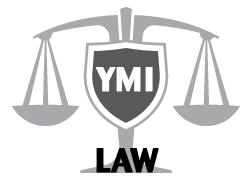A conveyancer is an admitted attorney who has passed a specialized conveyancing examination and has been admitted as a conveyancer by the High court of South Africa.
A central register of all conveyancers throughout the country is maintained by the Office of the Chief Registrar of Deeds in Pretoria and each Registrar of Deeds has access to his register. When a conveyancer is admitted by the High Court. A copy of the court order admitting the conveyancer needs to be served on the Registrar of Deeds within whose jurisdiction the conveyancer practices, who will then notify the Chief Registrar of Deeds of the admission of that attorney as a conveyancer. In terms of section 15 of the Deeds Registries Act 47 of 1937 (the Act), certain deeds can be prepared only by a conveyancer. The word preparation” has special meaning in conveyancing and relates to the prescribed forms referred to in regulations 43 and 44 of the Act. The Deeds which may be prepared only by a conveyancer are deeds of transfer, mortgage bonds, certificates of title, or other certificates of registration mentioned in the Act.
A conveyancer may prepare deeds for registration at any Deeds Registry within the Republic of South Africa.
All powers of attorney to transfer, powers of attorney to mortgage, special or general powers of attorney, applications or consents which are required to be lodged in the Deeds Registry can be prepared by an attorney, notary public or a conveyancer practicing anywhere within the Republic of South Africa. Where such documents are prepared by a notary public or an attorney, they must be countersigned by a conveyancer in accordance with the prescribed form referred to in regulation 44(5).
A conveyancer, attorney or notary public who signs the prescribed preparation certificate on any document lodged for registration accepts, in broad terms, the responsibility for the correctness of the information set out in that document as well as miscellaneous other matters, such as taking the responsibility for verifying that persons acting o behalf of companies, close corporations, trusts and other associations are duly authorized to act and that such institutions have the power and capacity to enter into the transactions concerned. It is imperative that persons signing preparation clauses on documents know what their responsibilities are when so. The extent of the preparer’s responsibility is set out in regulation 44A of the Act.
An additional function of a conveyancer in a legal firm is to supervise, manage and control the registration process of the transactions being dealt with, as well as the financial aspects relating to the transaction.
It is prudent, on receipt of most conveyancing instructions, and especially so with transactions such as transfers, mortgage bonds, certificates of title and consolidations, to obtain a computer printout from the Deeds Office database and to scrutinize the information thereon carefully. The printout can alert the conveyancer to any potential problems which may have to be dealt and which, if not dealt with, could result in delays in registration at a later stage. Examples of information which can be obtained by means of such a search are attachment interdicts, caveats and miscellaneous other interdicts, substitute copies of titles which may have been issued in terms of regulation 68(1), expropriations which may not be recorded against the client’s holding title, bonds which the seller may have paid off and may have forgotten about, sequestration or liquidation interdicts affecting the parties and miscellaneous other bits of information which can be of great assistance to the conveyancer.
It must however be borne in mind that the Deeds Office computer database is an index only and does not constitute proof of registration of any fact. Proof of registration is the actual registered deed or document which must be perused. Moreover there are countless errors and inaccuracies on the Deeds Office computer and great care needs to be taken before relying on that information. Nevertheless the Deeds Office computer is a useful tool which should be used on a daily basis. It is also good practice to obtain a second computer printout for both the property and the seller when the transaction is ready for lodgment.
This can alert the conveyances the attachment interdicts, expropriations, sequestration and liquidation interdicts and caveats which may been filed since the first printout was obtained.
Most conveyances’ operate with a staff complement consisting of secretaries and, sometimes, paralegals to assist them in the drafting of documents and the general running of the conveyance department. While many conveyance secretaries and paralegals have extensive experience in the preparation and registration of conveyance transactions, the responsibility for all conveyance matters always lies with the conveyance to properly supervise the registration of all transactions. A conveyance can never be heard to say that any problem which has arisen is as a result of a fault on the part of the conveyance secretary or the paralegal. Conveyance requires meticulous attention to detail, great accuracy, a wide knowledge of law and good drafting skills. Moreover, the Deeds Registries Act and Regulations, the Sectional Titles Act and Regulations as well as miscellaneous other Acts o Parliament are indispensable to the running of an efficient, prosperous conveyance practice, as is the use of one of the commercial computerized conveyance programs which are available.
It is only a conveyances who practices at the seat of the Registry who has authority to lodge deeds for registration in the Deeds Registry concerned. Consequently conveyances’, attorneys and notaries public who practice at venues other than the seat of the Registry are obliged to instruct a conveyances who practices at the seat of the Registry where the transaction is to be registered to lodge the documents on their behalf. Only a conveyances who is authorized under a power of attorney to transfer or mortgage, as the case may be, may appear before the Registrar of Deeds in order to execute the deeds. A notary public practicing at the seat of the Registry may lodge and register notarial deeds.
